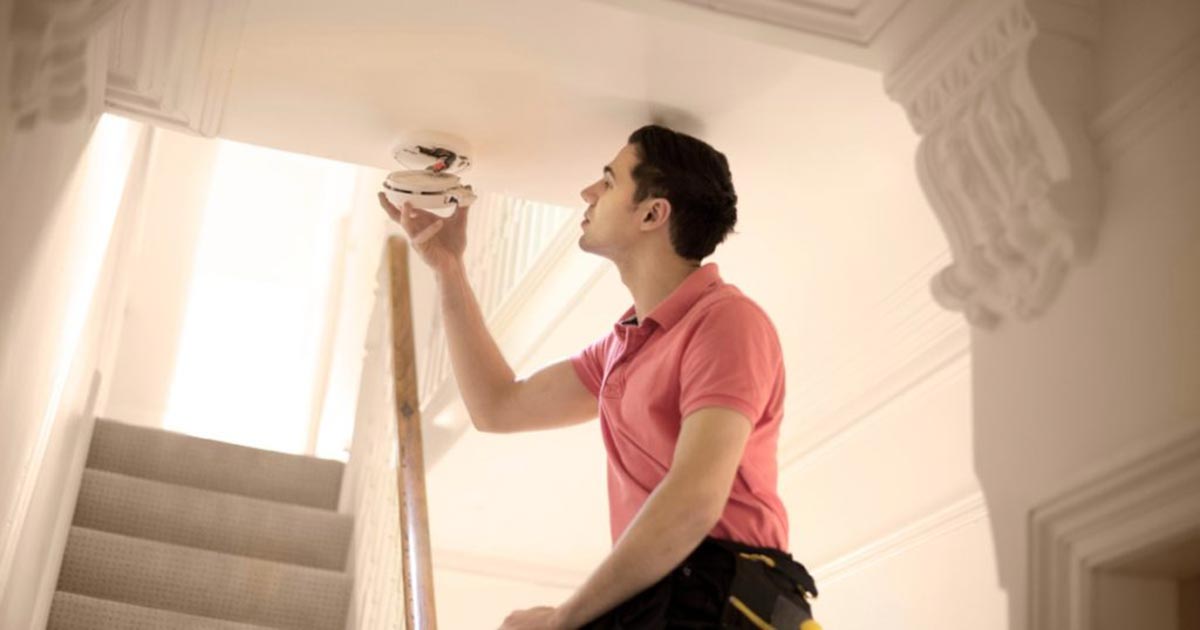Smoke alarms are essential safety devices that every home should have. These devices are designed to identify the existence of smoke and notify you in the event of a fire, granting you valuable moments to evacuate and seek assistance. Given the multitude of choices accessible in the market, selecting the appropriate smoke alarm for your residence is an intimidating endeavor. Smoke alarms come in two main types – photoelectric and ionization. Ionization alarms are more responsive to fast-flaming fires, while photoelectric alarms are better at detecting slow, smoldering fires. It is recommended to have both types installed in your home or choose a dual-sensor alarm that combines the two technologies for maximum effectiveness.
Consider power sources
how to maintain your smoke alarm? The power source of smoke alarms is batteries, hardwiring, or a combination of both. Battery-powered alarms are easy to install and work during power outages, but they require regular battery replacements. Hardwired alarms are more reliable but need professional installation. Combination alarms offer the advantage of backup batteries and continuous operation. Interconnected smoke alarms communicate with each other, so when one alarm detects smoke, all alarms in the network will sound simultaneously. This feature is crucial for larger homes or multi-story residences, as it ensures everyone is alerted regardless of their location in the house. Wireless interconnectivity is a convenient option for retrofitting existing homes.
Check for additional features
Some smoke alarms come with extra features that enhance their functionality. These may include carbon monoxide detection, voice alerts, hush buttons to temporarily silence false alarms, or built-in escape lights to guide you in low visibility conditions. Consider your specific needs and preferences when choosing these additional features. When purchasing a smoke alarm, make sure it meets the relevant safety standards and certifications for your region. Look for labels such as UL (Underwriters Laboratories) to ensure the alarm has undergone rigorous testing and meets the requirements.
Placement and installation
Proper placement and installation of smoke alarms are crucial for their effectiveness. how do smoke detectors work?Install smoke alarms on every level of your home, including the basement and inside each sleeping area. Mount them high on walls or ceilings, away from corners and air vents. Adhere to the installation and maintenance guidelines provided by the manufacturer, and conduct regular tests on your alarms to verify their proper functioning. To ensure your smoke alarms are in optimal working condition, perform regular maintenance and testing. Clean the alarms regularly to remove dust or debris that may impede their operation. Test the alarms monthly by pressing the test button, and replace the batteries as recommended by the manufacturer or when the low battery warning chirps.
Educate your household
Educate your family members about fire safety and what to do in case the smoke alarms sound. Develop and practice a fire escape plan, designating a meeting point outside the house. Teach everyone how to react calmly and evacuate the building safely, emphasizing the importance of not re-entering a burning house. Choosing the appropriate smoke alarm for your residence is an essential measure in guaranteeing the safety of your household. Regular maintenance, testing, and educating your family about fire safety are equally important. Investing in the right smoke alarms today saves lives tomorrow.
You may also like
-
Cash Offers for Mobile Homes: A Quick and Reliable Way to Sell in California
-
Selling a Mobile Home in Connecticut? Here’s a Better Option
-
The Essential Guide to Commercial Cleaning in Salem: How to Keep Your Business Spotless and Impress Your Customers
-
Choosing the Best Mechanical and MEP Solutions for Your Construction Project
-
Why Choose the Right Sliding Door Mechanism for Your Space

